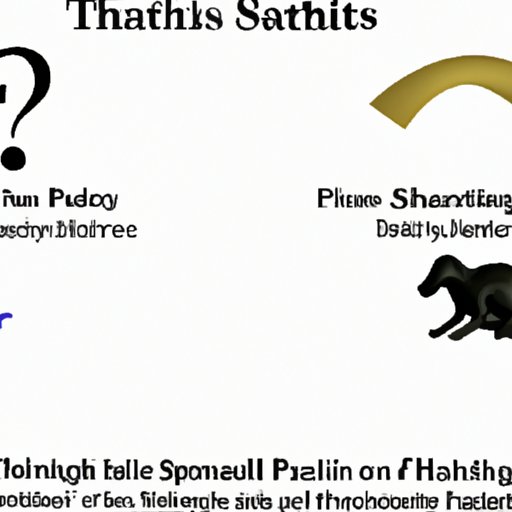Introduction
Philosophy of science is an area of study that seeks to understand the nature of science by examining its goals, methods, and underlying assumptions. It is a branch of philosophy that focuses on the various aspects of scientific knowledge, including its structure, scope, and limitations. Through this field of inquiry, we can better understand the purpose and implications of science in our lives.
The purpose of this article is to explore the history, principles, methodology, and impact of the philosophy of science. We will examine how different philosophical theories have shaped our understanding of science and how technology has changed the way scientists approach research. We will also discuss the relationship between science and religion, as well as some of the controversies that have arisen due to philosophical disagreements about the nature of scientific knowledge.
Exploring the History of Philosophy of Science
The history of the philosophy of science dates back to ancient Greece, when philosophers such as Pythagoras and Plato began to debate the nature of reality and the limits of human knowledge. They argued that the universe was composed of eternal and unchanging forms, which could only be accessed through rational thought. This idea of “rationalism” was further developed by subsequent thinkers, such as René Descartes and Gottfried Leibniz, who believed that knowledge could be acquired through logical deduction rather than empirical observation.
In the early modern period, British philosopher John Locke challenged the notion of rationalism by proposing an “empiricist” theory of knowledge. Locke argued that all knowledge is derived from experience, and he emphasized the importance of evidence-based reasoning. This view was further advanced by Scottish philosopher David Hume, who argued that all scientific knowledge must be based on observed facts.
In the 19th century, German philosopher Immanuel Kant proposed a synthesis of rationalism and empiricism, arguing that both are necessary for scientific knowledge. His work was influential in the development of the scientific method, which is still used today. Other 19th century thinkers, such as Karl Marx and Friedrich Nietzsche, also made important contributions to the philosophy of science.

Defining the Main Principles of Philosophy of Science
Logical positivism is a school of thought that emerged in the 20th century. It holds that all meaningful statements must be verifiable through empirical observation or logical reasoning. This view has been influential in shaping the modern understanding of scientific knowledge.
The scientific method is a set of procedures used to systematically investigate phenomena and acquire new knowledge. It involves formulating hypotheses, testing them through experiments, and drawing conclusions based on the results. This method has been widely adopted in the sciences and has become the cornerstone of the philosophy of science.
Empiricism is a philosophical position that emphasizes the importance of evidence-based reasoning. It holds that all knowledge must be derived from experience, and that data should be used to test theories and draw conclusions. This idea has been central to the philosophy of science since the 17th century.

Examining the Role of Scientific Methodology in Philosophy of Science
The hypothetico-deductive model is a popular method of scientific inquiry. It involves formulating a hypothesis and then using deductive reasoning to develop predictions about the phenomena being studied. These predictions are then tested through experimentation, and the results are used to either refute or support the original hypothesis. This approach has been widely used in the philosophy of science.
Induction and deduction are two approaches to scientific reasoning. Induction involves making generalizations based on observed data, while deduction involves deriving specific conclusions from more general premises. Both of these methods have been used to formulate theories and develop hypotheses in the philosophy of science.
Experimentation is a key component of the scientific method. It involves designing controlled experiments to test hypotheses and draw conclusions about the phenomena being studied. Experiments play an important role in the philosophy of science, as they provide evidence for or against theories and help us better understand the nature of reality.
Analyzing the Impact of Technology on Philosophy of Science
Technology has had a profound impact on the philosophy of science. Computers and automation have revolutionized the way scientists do research, allowing them to collect and analyze data more quickly and accurately. Artificial intelligence has enabled computers to perform complex tasks that were once thought impossible, such as diagnosing diseases and predicting weather patterns. Robotics has allowed scientists to explore environments that would otherwise be inaccessible, such as deep sea and outer space.
The increasing reliance on technology has raised ethical questions about the use of machines in scientific research. For example, some argue that robots cannot replace humans in certain areas of research, such as medical diagnosis, because they lack empathy and judgment. Others worry that artificial intelligence might lead to the automation of certain jobs, resulting in job losses and social inequality.
Discussing the Relationship between Science and Religion
The relationship between science and religion has long been a source of debate. Some people view science as a threat to religious beliefs, while others believe that science and religion can coexist peacefully. There is no one-size-fits-all answer to this question, as it depends largely on individual perspectives.
Many perceive science as a challenge to religion, as it offers explanations for phenomena that contradict traditional beliefs. This view is particularly prevalent among creationists, who reject evolution and other scientific theories. On the other hand, some argue that science and faith can complement each other, as both seek to explain the world around us.
Religion can also influence scientific research, as religious beliefs can shape the way scientists approach their work. For example, some researchers may be motivated by a desire to prove the existence of God, while others may be driven by a desire to disprove religious claims. This can lead to bias in the interpretation of data and the formulation of theories.

Comparing Different Philosophical Theories of Science
Realism vs. anti-realism is a debate that has been central to the philosophy of science. Realists believe that scientific theories accurately describe objective reality, while anti-realists argue that scientific theories are merely useful models that do not represent any underlying truth. This debate has implications for the nature of scientific knowledge and the validity of scientific theories.
Rationalism vs. empiricism is another ongoing debate in the philosophy of science. Rationalists believe that knowledge can be acquired through logical deduction, while empiricists argue that knowledge must be based on observed facts. This disagreement has implications for the use of the scientific method and the interpretation of data.
Holism vs. reductionism is a debate that has been central to the philosophy of science since the 19th century. Holists believe that the whole is greater than the sum of its parts, while reductionists argue that complex phenomena can be explained by breaking them down into simpler components. This debate has implications for how scientists approach research and the validity of scientific theories.

Investigating the Controversies Surrounding Philosophy of Science
The nature of scientific knowledge is a controversial topic in the philosophy of science. Some argue that scientific knowledge is absolute, while others believe it is always subject to change. This debate has implications for the reliability of scientific theories and the validity of scientific evidence.
The objectivity of science is another controversial issue. Some argue that science is inherently biased, while others believe it is an objective pursuit. This debate has implications for the use of the scientific method and the interpretation of data.
The conflict between science and religion is a longstanding issue in the philosophy of science. Some argue that science and religion are incompatible, while others believe they can coexist peacefully. This debate has implications for how scientists approach research and the validity of scientific theories.
Conclusion
This article has explored the history, principles, methodology, and impact of the philosophy of science. We have discussed how different philosophical theories have shaped our understanding of science and how technology has changed the way scientists approach research. We have also examined the relationship between science and religion, as well as some of the controversies that have arisen due to philosophical disagreements about the nature of scientific knowledge.
The philosophy of science is an ever-evolving field of inquiry that continues to shape our understanding of the natural world. It is a complex and multifaceted discipline that requires careful consideration of historical, philosophical, and methodological issues. By exploring the various aspects of the philosophy of science, we can gain a better understanding of its implications and relevance in our lives.
(Note: Is this article not meeting your expectations? Do you have knowledge or insights to share? Unlock new opportunities and expand your reach by joining our authors team. Click Registration to join us and share your expertise with our readers.)
